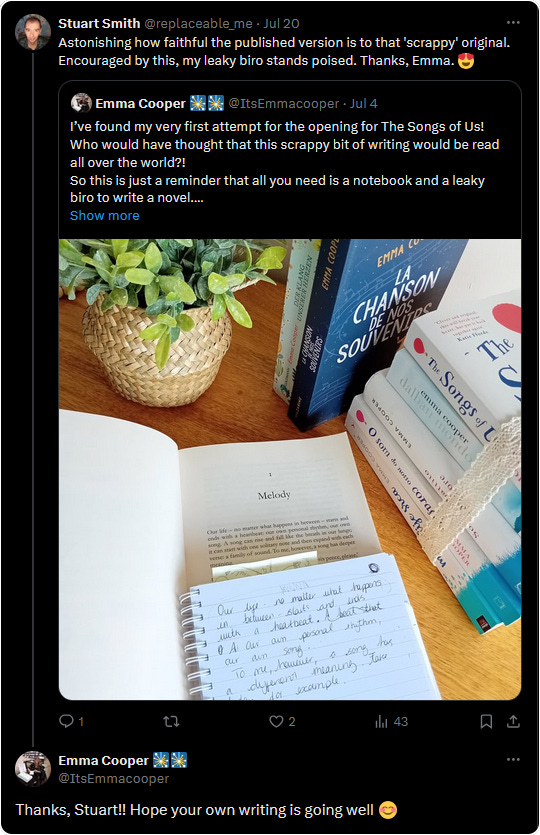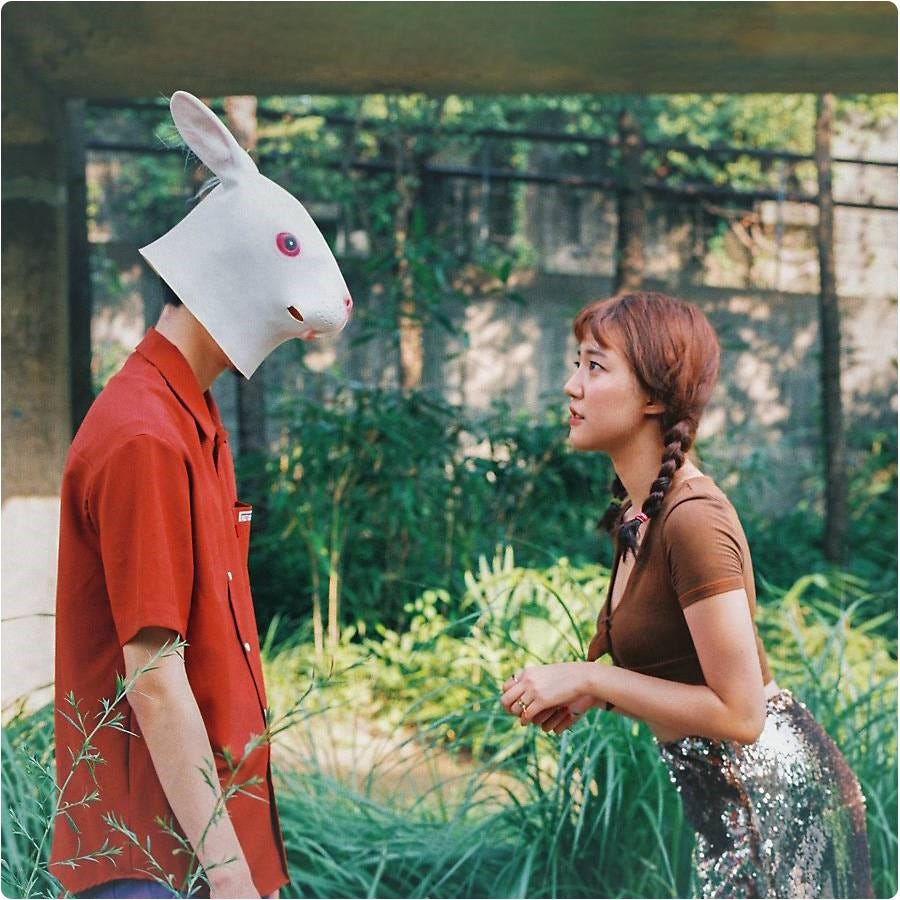I’m a recovering musician. I’ve been on the wagon for four years now, doing my damndest to express my creative ennui through writing rather than giving in to temptation and finding myself inebriated and on stage at some disreputable bar, facing the inevitable hangover when the Instagram clips roll in.
Oh, I’m aware of the ever-present dangers alright, but like the guys at my self-help group say: same as with alcohol addiction, nobody can call themselves an ex-musician.
It keeps on coming back to you. Now that I’m a writer — with one tiny publishing credit to my name — music rears its irresistible head in unpredictable ways. My current work-in-progress, It’s Only the End of the World (pitch: Spinal Tap – in space!) has the biggest band of the world in 2068, Blue Noize, suffering creative meltdown as they try to complete their concept-album meisterwerk, The Void. My overflowing vinyl collection provides a constant soundtrack.
Music as soundtrack is not a new idea, of course. The idea of music as inspiration. Soundtrack to movies; soundtrack to life. Soundtrack to books? It’s been done, most memorably by Emma Cooper in The Songs of Us. As Bernard Sumner of New Order once said, the trick with originality is to do it first.
And then there’s the one that got away.
Pretty much the first thing I ever wrote, other than thirty years of questionable lyrics, was an outline of a novel I’ve never worked on since: a fictionalized biography of Anna the Javanese, sometime muse of Paul Gauguin — famous for impressionism, Tahiti, and hanging around with the even more gifted and even less successful Vincent van Gogh.
The fiction is hard to separate from the truth: her name wasn’t Anna (possibly Annah, sometimes Hannah), and she wasn’t Javanese (variously described as Singalese or ‘mulatto’, having a French father and a Polynesian mother). Her family sold her to Gauguin at the age of thirteen … or he bumped into her one drunken evening in Montmartre. You see the problem.
She certainly was Gauguin’s lover, and certainly sounds like somebody who knew how to stand up for herself: leaving Gauguin after he’d caused yet another unnecessary punch-up, this time with a bunch of sailors in Brittany, hi-tailing it back to Paris while he still lay in hospital and cleaning out his flat of all her possessions, ready cash, and things she liked the look of. There begins the fiction.
All the while, as I attempted to get this fun stuff down on paper, a favourite covid-era album boomed and scraped in my ears – Crumbling, by Mid-Air Thief.
It’s difficult to overstate how nerve-tingling the impact of this otherworldly sound was, at the time. The band are from South Korea, and Mr Thief and Summer Soul don’t feel the need to sing in English for an international audience. They have very little media presence, have won dance music awards, but are described as folktronica. Go figure. They’re beyond description. All I knew, sitting in a darkened room during that first pandemic summer, was that they’d transported me to a Victorian world of wooden contraptions, great exhibitions, and glorious, glorious, fan de siècle excess.
So, I invite you to listen to their ethereal banger, Protector, one of my favourites, while you read this short extract, and see if it takes you to the same place.
Anna the Javanese
She sits in the blue damask chair, and wriggles.
Gauguin takes a lazy drag from his cigar, pacing either side of his easel. He’s appraising her. Something’s missing, and she doesn’t know what. It’s unsettling.
“Pol? Qu'est-ce que c'est? You look worried…”
He doesn’t reply, but shakes his head, focusing intently on her right breast.
She questions herself. It was her idea to pose for him, but now she’s here, naked but for her fur wrap, there’s a nagging sense of something having gone awry. The same feeling she had on Réunion when the missionaries came. She shivers, pulling the wrap around her shoulders. She’s been naked in front of him before, of course. They’ve shared plaisir d’amour, and he isn’t bad at it, but this is something else. This isn’t sharing.
She tells herself to not to be so sensitive. She probably wasn’t wearing much when he first saw her either, playing with the other girls in the brushland, but that was half a world away, and a different life. The life of a child.
“The composition doesn’t work. The fur adds nothing to the image. Take it off.”
This is different. Now, she’s his model.
“No. It’s freezing in here.”
He nods, stroking his beard.
“Yes, chérie, I know.” He’s wearing a jacket, the bastard. “But it accentuates the points of your bosom, non?”
He smirks. “You’ve got to give the artist inspiration!”
She’ll give the artist a slap round the chops if she feels like it, but holds off on that. She wanted to do this, after all. Maybe she’ll never be a respectable parisienne, but she’s not just his plaything. Once this is done, she’ll be part of his œuvré. One of his scène.
“Give me your cigar.”
He frowns down at the thing, perhaps regretting lighting it up now, but acquiesces. She brings it to her lips and closes her eyes as she draws the smoke deep into her lungs, enjoying the warm tingling that spreads throughout her body. She feels the sun of Réunion on her face.
She shrugs off the fur and casts it away.
“Paint me.”







I love this extract. It works so well as a flash fiction too.